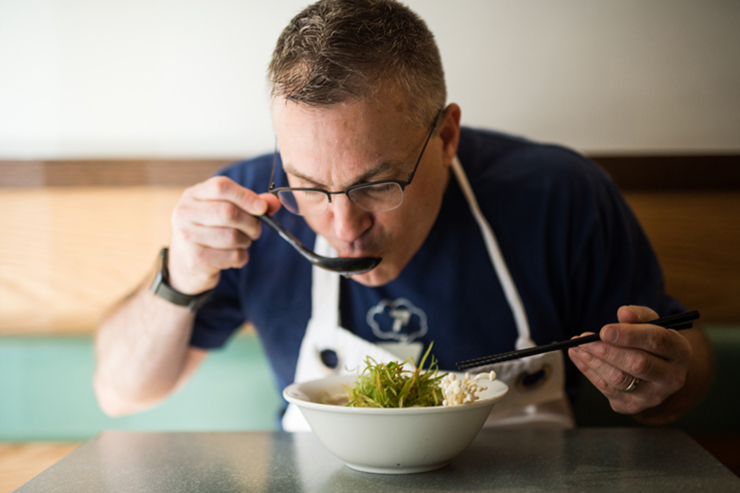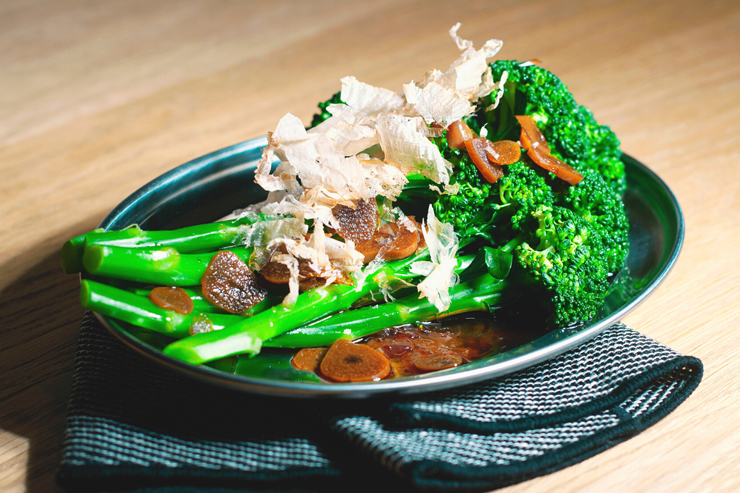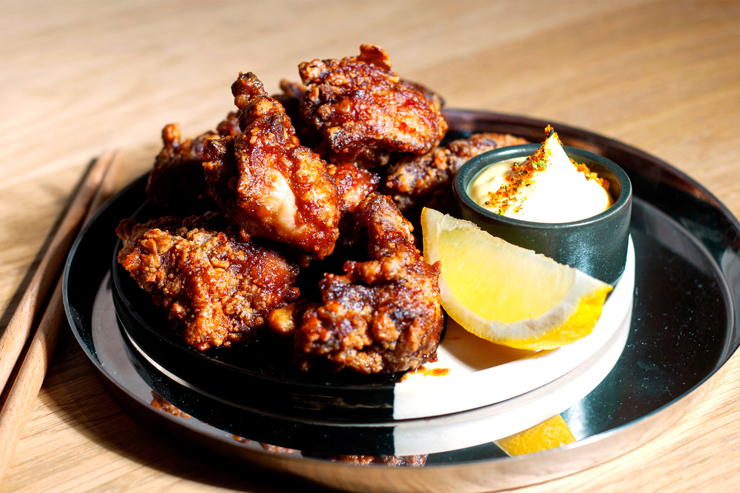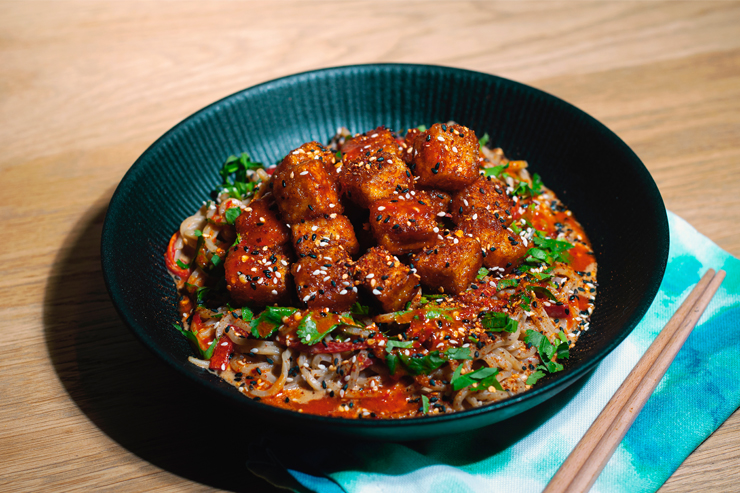In 2015, Netflix released their seminal documentary series Chef’s Table. A feast for the eyes, it was an exquisitely shot piece of food cinematography, an intimate, in-depth journey inside some of the world’s most fascinating kitchens and the minds of those who ran them. For food lovers around the world, it was a televisual love letter to food, the featured chefs its poets.
One such scribe was Ivan Orkin, better known to millions around the world as Ivan Ramen. A born-and-bred New Yorker, the straight-talking, self-confessed Japanophile had taken the Tokyo ramen scene by storm in 2007. Opening his Ivan Ramen restaurant in the city’s densely populated Setagaya district, here was a white Jewish guy from Long Island making ramen better than most of his Japanese counterparts.
It was a made-for-TV success story, one that unsurprisingly caught the eye of Japanese reality TV producers, whose coverage shot Orkin to early fame. Running first Ivan Ramen Tokyo, then four years later Ivan Ramen Plus, Orkin returned to NYC’s Hell’s Kitchen in 2013 to open Ivan Ramen Slurp Shop, followed by Ivan Ramen Clinton Street on the Lower East Side. In 2017 he featured on the third series of Chef’s Table, which yours truly watched awestruck as bowls like pickled daikon XO, kewpie ebi, Coney Island tofu, and shio ramen slid across the screen to a soundtrack of sultry strings and woodwind.
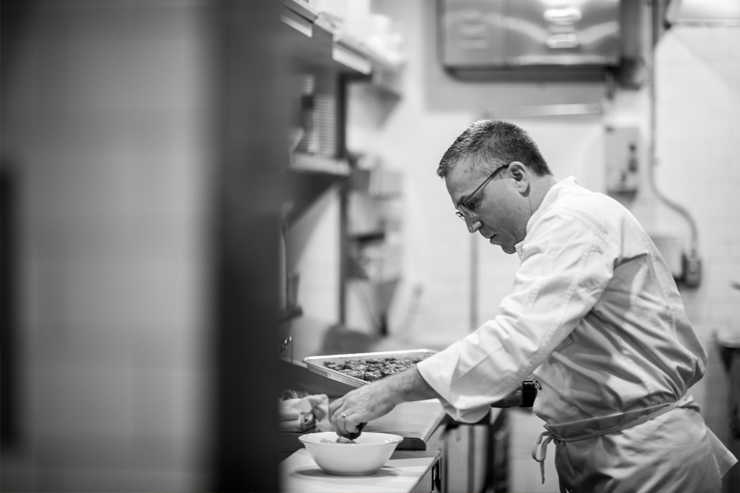
So when, just weeks ago, an email from Brighton’s Shelter Hall announced that none other than Ivan Ramen was bringing his Ivan Mazemen concept to the city for a 12-week residency, this particular food writer almost lost their proverbial. Make no mistake Brighton foodies, Orkin knows his noodles, so much so that Japan’s culinary elite regard this ‘gaijin’ as a master. The fact we get to sit down and indulge in his wizardry is absolutely worth making a song and dance about. Which is why, on a particularly grey and windy January afternoon, my laptop perched precariously on the arm of my sofa, I am easily five minutes early for an interview with Orkin and I am fangirling. HARD. I’m also more than a little intrigued to find out exactly what mazemen is, and why he’s not bringing his famous ramen dishes to town. As it turns out, delivery is the ultimate aim of the game.
“For delivery specifically, it holds up really nicely,” Orkin explains. He’s sitting in his home in New York, having only recently returned from London where he’s been setting up shop in preparation of Ivan Mazemen’s UK run. “It’s a really fun product to do that way. I’m a huge fan of mazemen, I’ve been making it since almost the very beginning in Japan. It’s a style that I’ve always really enjoyed, and I thought it would be a great brand to introduce.”
The difference between mazemen and its more popular relative ramen is all to do with the broth – or rather the lack of it. ‘Maze’, Orkin tells me, is the Japanese word for ‘mix’, denoting the dish’s thicker base compared to ramen. “When you make ramen, everything goes into a very hot broth. The experience of eating the noodle changes a little bit because the hot broth is making the noodle soften. That’s part of why you eat it so fast and slurp it. When you make the mazemen, the texture of the noodle kind of holds a little bit longer.”
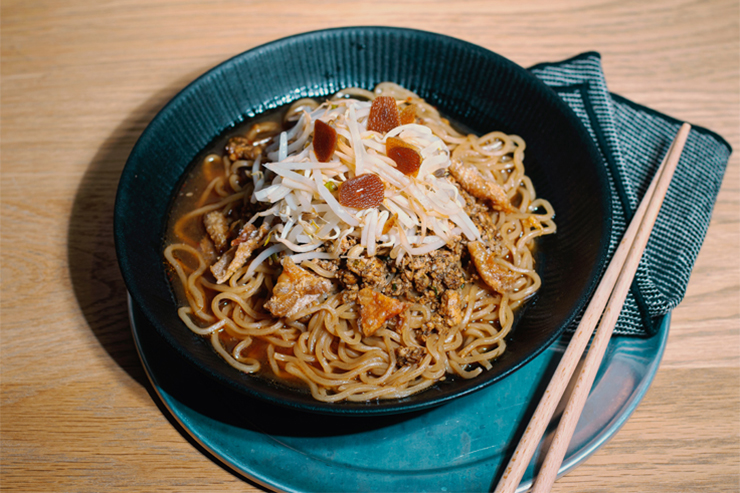
When Orkin talks about noodles, you pay attention. This is a man who dedicated the best part of a year to creating the perfect ramen noodle, an obsessive search that saw him run through countless combinations of different flours, recipe percentages, and cooking times. He says his noodle recipe is a “riff” on a noodle that he’s been using since the very beginning. “It’s a really great recipe, I really like it. It’s a medium thickness noodle. Ramen often uses a very, very thin noodle and when I make ramen, I tend to use a very, very thick noodle. But for mazemen, I tend to use a medium noodle. The notion (for mazemen) is that you kind of mix it all up a little bit more when you eat it. You could certainly say it’s a saucy noodle. It’s closer to a pasta.”
Make no mistake, Orkin is in no way, shape, or form giving us Italian. Mazemen, just like ramen, is all about the flavour and the experience. “It’s very, very intensely flavoured, salty, fatty, lots of intense flavour which is I think the hallmark of ramen and what makes it different than say, Italian pasta, which is often not quite as intense and bold. I think people crave ramen because a lot of styles are very fun to eat. They’re explosive and flavourful, and mazemen is like ramen, it’s slurpy and noisy and messy and it’s still very similar in the eating experience, but I think you can add more fun toppings when you do mazemen. Dumping things into broth, it kind of proliferates through the soup and you can lose some of that intensity whereas in a mazemen, you could put something a little more saucy on top, you can experience a different type of topping. There’s a lot of fun things you can do with mazemen.”
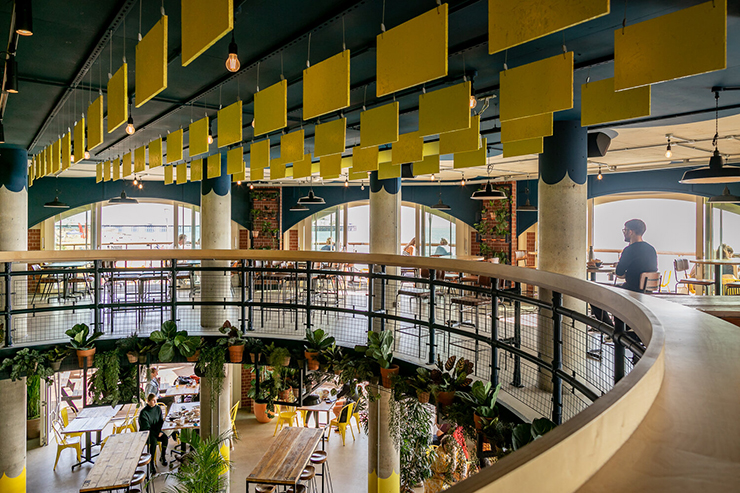
My imagination dancing with all the different things I plan to put on top of my mazemen, with some difficulty I pull myself back into the moment to ask a particularly burning question, given this chef’s legend. Out of all the restaurants in all the world, why Shelter Hall, I ask? Why Brighton?
“It’s all about Sessions,” Orkin says. “(Shelter Hall is) their location, so we’re basically doing a partnership. They’re putting Ivan Mazemen in their food halls for an introduction to the UK, and then these will end, and it will roll out to dark kitchens.”
Dark kitchens. Nowhere near as nefarious as their name suggests, even before the pandemic restaurant brands were increasingly using these off-site kitchens to move effectively into the online delivery space. “People love delivery,” Orkin muses. “In New York they can’t live without it, and it seems like in the UK it’s the same. It didn’t start with the pandemic. I think the pandemic has sped up lots of different things, especially things involved with technology. Look at something like Zoom. Zoom was coming, but (during the pandemic) it really exploded.”
For Orkin the model is a sound business idea. “At the end of the day, I’m a business person. That’s what I do. I try and figure out how to earn a living and find more ways to increase income and have interesting ways to reach your customer base. I’m thrilled to be able to make my food and feed people in London and Brighton, it’s very exciting.”
Working with Sessions, Orkin says, will take his Ivan Mazemen concept deeper into the European market. “I love travelling. One of the reasons this whole Sessions project is happening is because we’re working on expanding it across the sea. We’d like to spend more time in England and France and all over the EU. We have a lot of friends there, a lot of people I respect. I want to have more time travelling and expanding my business in different places.”
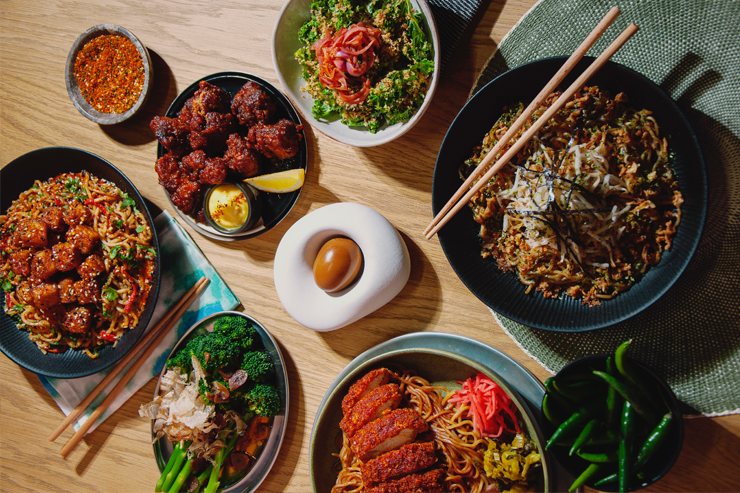
But it’s not travelling that Orkin’s done, but rather living. It’s one thing to go on vacation every now and again, quite another to immerse yourself into another culture the way he has with Japan. It was a love affair that started at an early age when a 15-year-old Orkin started washing pots in a local sushi restaurant. “Everybody was really nice,” he says, “the food was really delicious. I was very intrigued by the language that I didn’t understand.” Bitten, he majored in Japanese Studies at college and spent time in Japan teaching English before returning to the US to study at the prestigious Culinary Institute of America, followed by stints in Bobby Flay’s Mesa Grill, and the iconic Lutèce. But Tokyo kept calling, and Orkin returned. It was this chapter of his life that birthed Ivan Ramen and led to his involvement with Netflix’s standout show Chef’s Table.
“It was just a once-in-a-lifetime opportunity,” Orkin acknowledges readily, who by that point had moved back to New York to open his ramen restaurants there. “I’d already become well known, but all of a sudden, tens of millions of people can watch this show about me. My business exploded even more than it had been because New York is a huge tourist magnet and so we have a large amount of our customers coming from all over the world.”
It’s clear that for Orkin, Chef’s Table wasn’t so much an opportunity to promo his restaurant to potential new customers, but rather to share his sheer passion for Japanese culture. He instantly lights up as we talk about it. “I’ve always been something of an evangelist for Japan,” he admits. “Still to this day, I’m disappointed how little people know about Japan. It was the number one economy for many, many years, and now it’s maybe number two or three, but it’s still an important force. A lot of people don’t know very much about it, or they think they can’t go because it’s too expensive, which it isn’t. And so I think part of the whole ramen thing has always been my desire to teach people about Japan, have them try the flavours of Japan, encourage them to visit Japan. Japan is my happy place and I love being there. My family is Japanese. And so I really try to have people know about it.”
So is his food essentially a love letter to Japan, I ask? “It sounds hokey, but in a way it is.” He nods emphatically. “It is for me.”
Ivan Mazemen is open at Brighton’s Shelter Hall until May 6th
To book visit www.shelterhall.co.uk
Photos by Daniel Kreiger and Tommy Chatt
Follow Ivan Orkin on Instagram
Follow Sessions on Instagram
Follow Shelter Hall on Instagram


